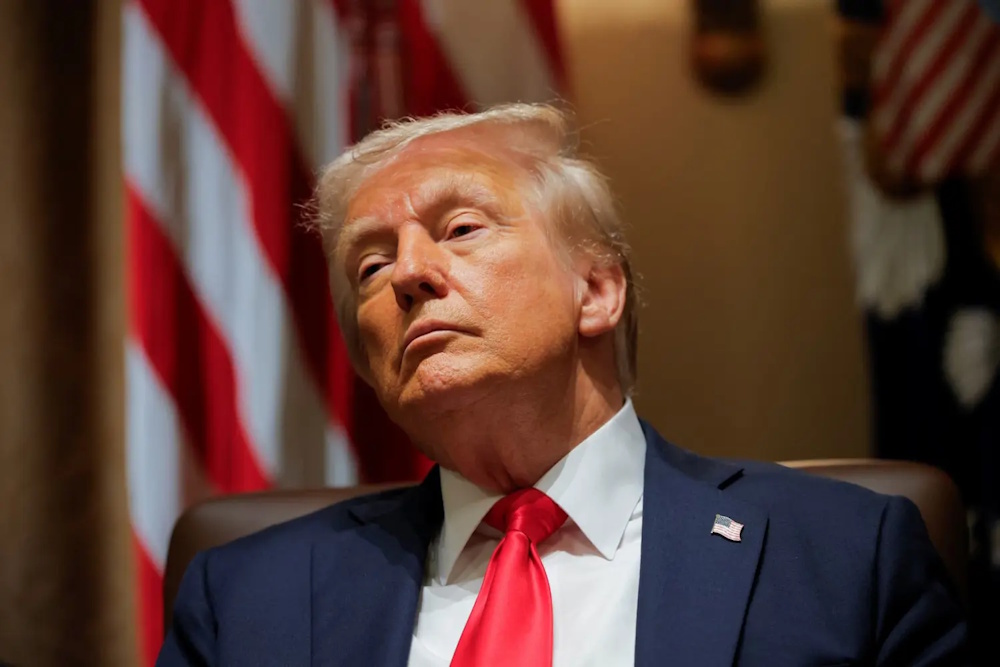
The extensive tariffs implemented by President Donald Trump during his second term are now subject to a crucial evaluation that will ascertain his ability to maintain these measures, as well as the eligibility of businesses for substantial refunds. The recent development in the tariff situation follows a federal appeals court ruling on August 29, which determined that Trump improperly utilized the International Emergency Economic Powers Act to implement widespread duties on various countries. Trump exercised those powers to impose import tax rates reaching 50% on India and Brazil, and even as high as 145% on China earlier this year.
The Supreme Court has decided to hear the appeal from the Trump administration, with proceedings set to commence on November 5. Until a verdict is reached, US businesses will remain obligated to pay all the tariffs imposed by Trump. American businesses have incurred nearly $80 billion in costs as of September 7 to address the tariffs deemed illegal by US courts. Earlier this month, Trump acknowledged that the court’s decision, if upheld by the Supreme Court, could result in the US Treasury having to “give back” tariff revenue collected. If the nation’s highest court rules against the Trump administration, American businesses may see a return of those funds to their coffers. However, it is unlikely to be a straightforward or rapid endeavor. Ted Murphy, an international trade lawyer at Sidley Austin, stated that should the Supreme Court determine that Trump lacked the legal authority to impose tariffs under IEEPA, the administration would be required to halt those collections immediately. Nonetheless, Murphy indicated that the handling of potential refunds remains an open question.
The government may opt to reimburse all importers who have paid the invalid tariffs, he stated. Another possibility: “The government could also take the position that the court decision only applies to the named plaintiffs, thereby requiring importers to file their own court action.” Alternatively, Murphy posits a scenario that appears most plausible: “The government could also try to get the court to approve an administrative refund process, where importers have to affirmatively request a refund.” Officials from the Treasury Department, the government entity responsible for managing tariff revenue until its allocation is determined, refrained from providing comments on the administration of potential tariff refunds. Following the ruling by a three-judge panel at the US Court of International Trade in May, which deemed Trump’s application of IEEPA for imposing tariffs as illegal, Thomas Beline, reported a surge in inquiries from clients eager to know, “When can I have my money back?” His response: Do not expect anything soon. Instead, he has been collaborating with clients ahead of a conclusive decision to continue submitting administrative protests to US Customs and Border Protection regarding tariff payments. This effectively hinders the entries from achieving complete settlement and may facilitate the process of obtaining a refund in the future, he stated.
A number of his clients have been solicited by investment firms seeking to acquire their interests in prospective refunds. It represents a calculated risk, as numerous enterprises burdened by substantial tariff obligations continue to seek immediate liquidity. They are reluctant to endure a delay for a refund that may ultimately prove elusive. Conversely, this would imply that they are unable to receive a complete refund of their tariff payment. While businesses may be pleased by the prospect of tariff refunds, it would not necessarily represent a win-win scenario for the economy. The substantial tariff revenue retained by the Treasury in its general fund indicates that the government has reduced its borrowing needs compared to what would have been necessary otherwise. Reversing the tariffs would require increased borrowing to meet its financial obligations. Such a scenario may involve an increase in the issuance of Treasury bonds, potentially leading to a rise in yields and, consequently, an escalation in borrowing costs throughout the economy. An increase in the supply of bonds to address the unexpected shortfall in tariff revenue implies that the government may need to provide higher yields to entice investors. “If this ruling is upheld, refunds of existing tariffs are on the table, which could cause a surge in Treasury issuance and yields,” Ed Mills, stated in a note earlier this month.
Gary Hufbauer, expressed that refunds might raise apprehensions regarding potential runaway inflation. “During the Biden administration, substantial budget deficits coupled with accommodative monetary policies have unleashed the inflation genie,” he stated. During the Trump administration, the budget deficit of the nation has persisted in its upward trajectory, despite the increase in revenue from tariffs. Trump’s approach to reducing interest rates has involved a direct confrontation with the Federal Reserve, particularly targeting Chair Jerome Powell. He has also sought to undermine the Board by attempting to dismiss Fed Governor Lisa Cook and replace her with a loyalist who might sway the rate-setting committee towards lowering borrowing costs. Should he succeed in persuading the central bank to reduce interest rates amidst the potential distribution of substantial tariff refunds, “that would refresh investor memories about the Biden years,” Hufbauer noted.

